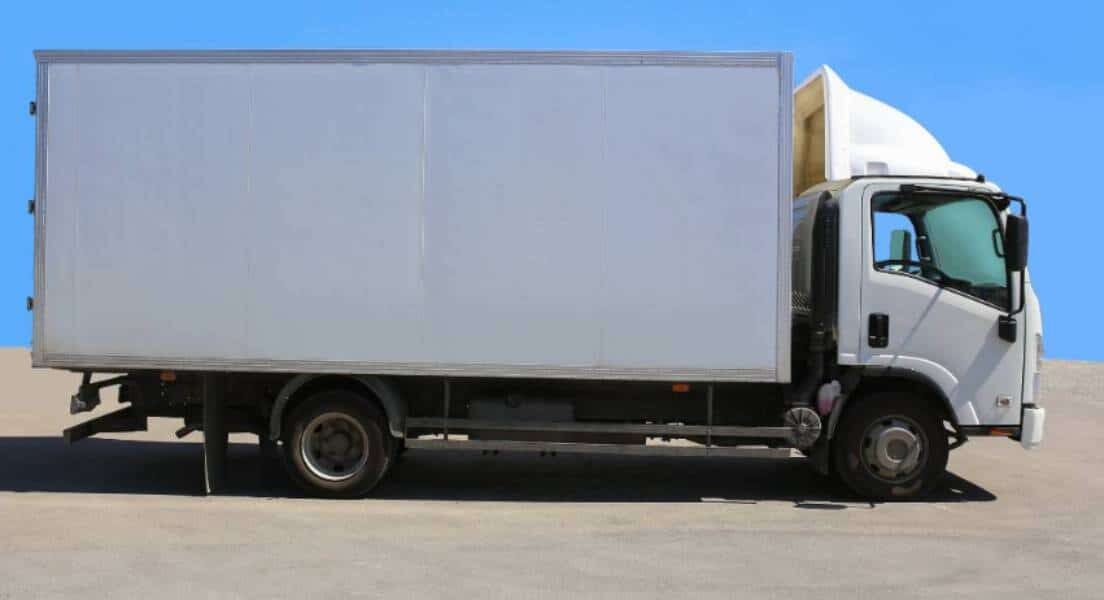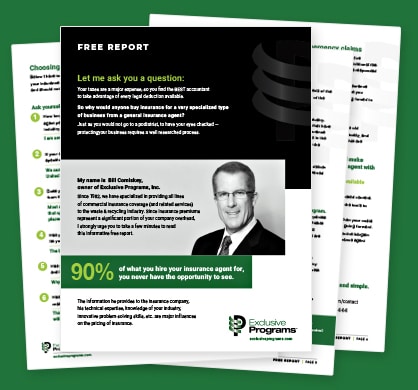If you operate a business in the waste and recycling industry, you understand the critical role that box trucks play in your daily operations. These vehicles are the backbone of your fleet, helping you transport goods efficiently and effectively. However, along with the benefits of owning box trucks comes the responsibility of ensuring they are adequately protected. That’s where box truck insurance comes into play.
Understanding Box Truck Insurance
Box truck insurance is a specialized type of commercial auto insurance designed to protect box trucks and their drivers from financial loss in the event of an accident, theft, or other covered incidents. This type of insurance provides coverage for both property damage and bodily injury liability.
How Much is Box Truck Insurance?
One of the most common questions among box truck owners is, “How much is box truck insurance?” The cost of box truck insurance can vary depending on several factors, including the size and value of your fleet, the level of coverage you need, your location, and the driving records of your employees.
According to Insurance Journal, the average cost of commercial auto insurance, including box truck insurance, is around $900 to $1,200 per vehicle per year. However, this can vary significantly based on the factors mentioned earlier.
Research from The Federal Motor Carrier Safety Administration (FMCSA) indicates that accidents involving commercial trucks result in significant financial losses, with an estimated cost of $91 billion in 2019 alone. This underscores the importance of having adequate insurance coverage to protect your business from potential liabilities.
Furthermore, a study by the National Highway Traffic Safety Administration (NHTSA) found that large trucks accounted for 11% of all motor vehicle crash deaths in 2019. With such statistics in mind, investing in comprehensive box truck insurance is not just a legal requirement but also a prudent financial decision to safeguard your business assets.
Key Coverage Options
When purchasing box truck insurance, it’s essential to understand the different coverage options available to you. Here are some key coverages to consider:
- Liability Coverage: This coverage protects you if your driver is at fault in an accident and causes bodily injury or property damage to others.
- Physical Damage Coverage: This coverage helps pay for repairs to your box truck if it’s damaged in an accident, regardless of who is at fault.
- Cargo Insurance: This coverage protects the goods you’re transporting in your box truck in case they are damaged, stolen, or lost during transit.
- Uninsured/Underinsured Motorist Coverage: This coverage helps pay for medical expenses and property damage if your driver is involved in an accident with an uninsured or underinsured motorist.
Furthermore, according to a report by The Insurance Information Institute (III), liability claims against businesses, including those in the transportation industry, have been increasing in recent years. Having sufficient liability coverage can protect your business from potential lawsuits and costly settlements.
Moreover, data from The American Trucking Association (ATA) indicates that cargo theft costs the transportation industry billions of dollars annually. By investing in cargo insurance, you can mitigate the financial risks. This will ensure that your business operations remain uninterrupted in the event of a loss.

Benefits of Box Truck Insurance
Investing in comprehensive box truck insurance offers several benefits for your business:
- Financial Protection: In the event of an accident or theft, insurance coverage can help mitigate the financial impact on your business.
- Compliance: Many states require commercial vehicles to be insured, so having the right coverage ensures that you’re compliant with local regulations.
- Peace of Mind: Knowing that your fleet is adequately protected provides peace of mind for you and your employees, allowing you to focus on running your business efficiently.
Importance of Comprehensive Coverage
Given the nature of the waste and recycling industry, box trucks are often exposed to unique risks. This includes frequent stops, heavy loads, and navigating through tight spaces. Furthermore, according to the Federal Motor Carrier Safety Administration (FMCSA), there were over 5,000 fatal crashes involving large trucks in the United States in 2020. Having comprehensive insurance coverage can help protect your business from the financial consequences of such accidents.
Factors Affecting Insurance Costs
Several factors can influence the cost of box truck insurance premiums, including:
- Driving History: Insurers will assess the driving records of your employees to determine the level of risk associated with your fleet. A history of accidents or traffic violations may result in higher premiums.
- Location: The geographic location where your business operates can impact insurance rates. Urban areas with higher traffic congestion and crime rates may have higher premiums compared to rural areas.
- Type of Cargo: The type of cargo you transport in your box trucks can also affect insurance costs. Therefore, hazardous materials or high-value goods may require additional coverage, leading to higher premiums.
- Vehicle Value: Your box trucks’ value and replacement costs will also factor into insurance premiums. Newer, more expensive vehicles may have higher premiums compared to older models.
Secure Your Fleet and Business
In conclusion, box truck insurance is a crucial investment for any business operating in the waste and recycling industry. Understand the basics of box truck insurance and choose the right coverage options for your fleet. This way, you can protect your assets, your employees, and your bottom line.
At Exclusive Programs, Inc., we specialize in providing tailored insurance solutions for businesses like yours. Whether you need box truck insurance, general liability coverage, or risk management services, we’re here to help. Contact us today for more information on how we can protect your fleet and your business. Contact us for more information! Remember, when it comes to protecting your assets, it’s always better to be safe than sorry. Don’t wait until it’s too late—invest in box truck insurance today.


